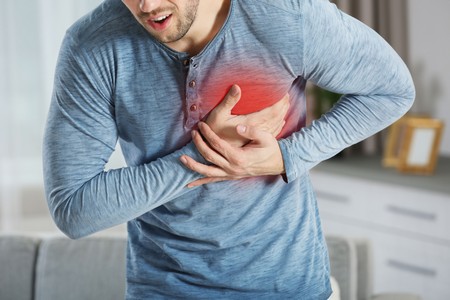Bradycardia: What Is It And When Is It An Emergency?
In the realm of heart health, there are various conditions that can affect the normal functioning of this vital organ. One such condition is bradycardia. Bradycardia refers to a heart rate that is slower than the normal range, typically less than 60 beats per minute. While it may not always be a cause for alarm, there are instances when bradycardia can become an emergency. In this blog post, we will explore what bradycardia is, its causes, symptoms, and when it warrants immediate medical attention.
What is Bradycardia?
Bradycardia means an abnormally slow heartbeat. It is usually defined as a heartbeat that is slower than 60 beats per minute.
Some people who have slow heartbeats are completely healthy. But for others, a slow heartbeat may mean that not enough blood is being pumped to supply the needs of the heart itself.
Bradycardia can cause fatigue and other symptoms. If it is serious enough, bradycardia can cause cardiac arrest and death.
Also see: 8 Ways to Reduce Your Risk for Heart Disease
What are the symptoms?
Bradycardia does not always cause symptoms. In some people, such as athletes, a slow heartbeat may be normal and completely healthy.
The most common symptoms of bradycardia are:
- Fatigue or weakness
- Shortness of breath
- Palpitations
- Lightheadedness or dizziness
- Fainting
- Chest discomfort
Are you experiencing chest pain?
In a life-threatening emergency, call 911 or your local emergency number. If you are unable to do so, ask someone to call for you or to take you to the nearest emergency care facility. You may go to any hospital in your area for emergency care.
Causes of Bradycardia.
Several factors can lead to bradycardia, including:
- Age-related changes: As we age, our heart's electrical system can naturally slow down, leading to a slower heart rate.
- Medications: Certain medications, such as beta-blockers used to treat high blood pressure, can decrease the heart rate.
- Heart conditions: Various heart conditions, such as coronary artery disease, heart attack, heart failure, or congenital heart defects, can disrupt the heart's electrical system and cause bradycardia.
- Hypothyroidism: An underactive thyroid gland can lead to bradycardia as it affects the body's metabolism and slows down heart function.
- Infections or inflammatory diseases: Certain infections or autoimmune disorders can affect the heart's electrical pathways, leading to bradycardia.
Also see: 5 Ways to Take Care of Your Heart
How is Bradycardia treated?
The first step in treating bradycardia is determining its cause.
A major cause of bradycardia is a problem with the conduction system of your heart. The heart contains a network that acts as an electrical wiring system. This conduction system can be damaged or degenerate over time, causing your heart rate to slow down or to skip beats.
Your cardiologist may recommend a pacemaker to treat your slow heart rate.
In some patients, other disorders—such as hypothyroidism—may be causing the slow heartbeat. If that is the case, your cardiologist will recommend treatment for the underlying condition.
Medications can be another cause of bradycardia. Your cardiologist will want to determine if a current prescription could be the cause of your slow heartbeat. Often, lowering the dosage or taking an alternate medication can help resolve the problem.
Also see: When to Go to The ER for Heart Problems
When to Go to the ER for Bradycardia
If you have never been diagnosed with bradycardia and develop the symptoms listed above quickly, or if your symptoms worsen or change suddenly, get to the emergency room as soon as possible.
If you experience any of the following, get immediate medical treatment:
- Chest pain
- Shortness of breath
- Dizziness, lightheadedness, and fainting (syncope)
These are all symptoms of a severe issue that requires emergency treatment.
If your symptoms worsen or change suddenly, visit or call the Closest Emergency Room for the medical help. ER of Texas emergency rooms are fully staffed with experienced healthcare professionals who are ready to treat bradycardia anytime, 24 hours a day, seven days a week. You need immediate care to achieve normal heart rhythm, identify the cause, and prevent further injury.
We have ER locations across the DFW metroplex that are open and here to help you 24/7 If you or your family have a medical emergency.
We have 9 facilities spread across the DFW area with average wait times of less than 10 mins that are OPEN 24/7 located in Hurst, Colleyville, Frisco, Highland Village, Hillcrest, Uptown, Little Elm, Mansfield, and Texoma.




.jpg)